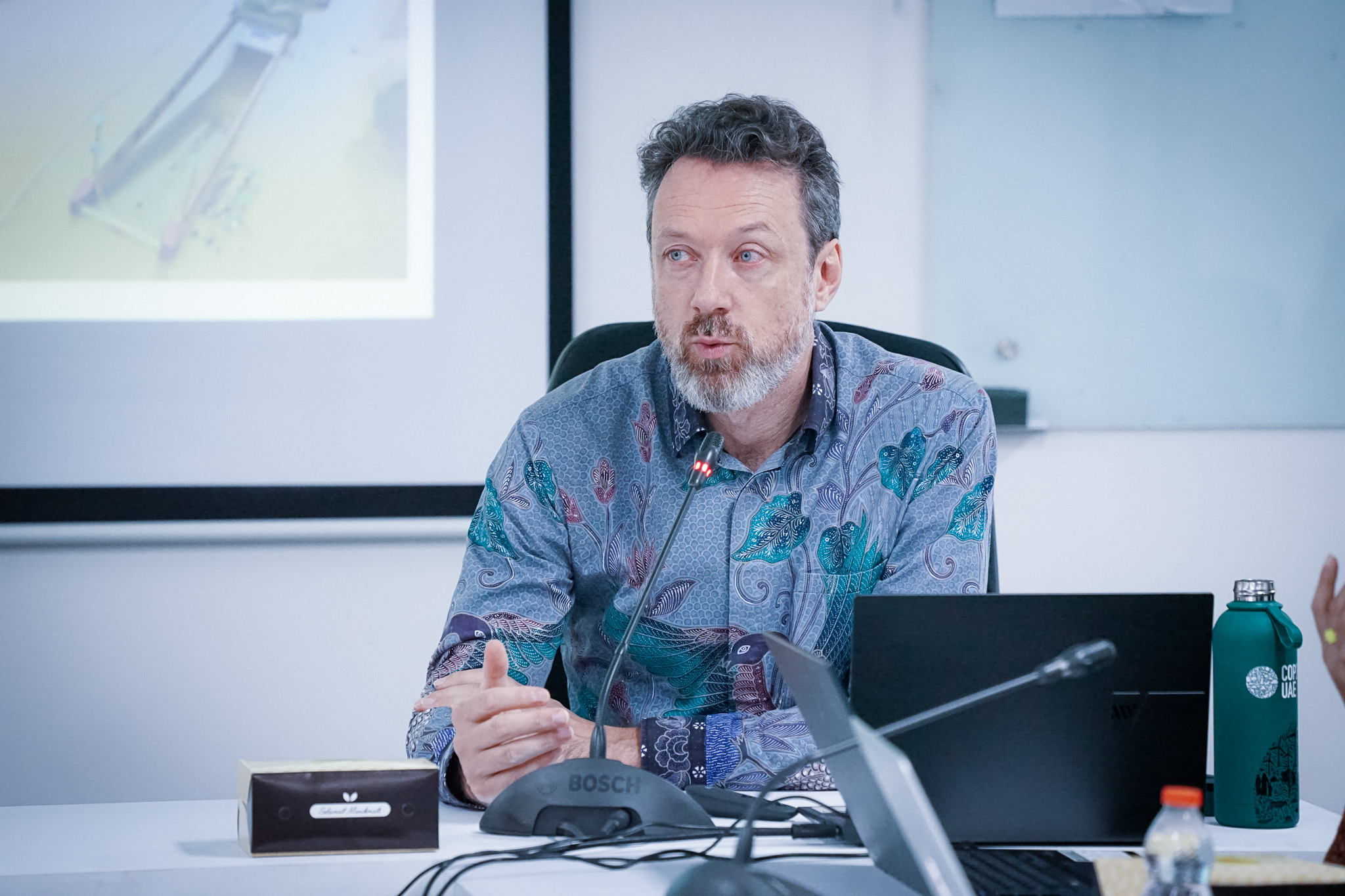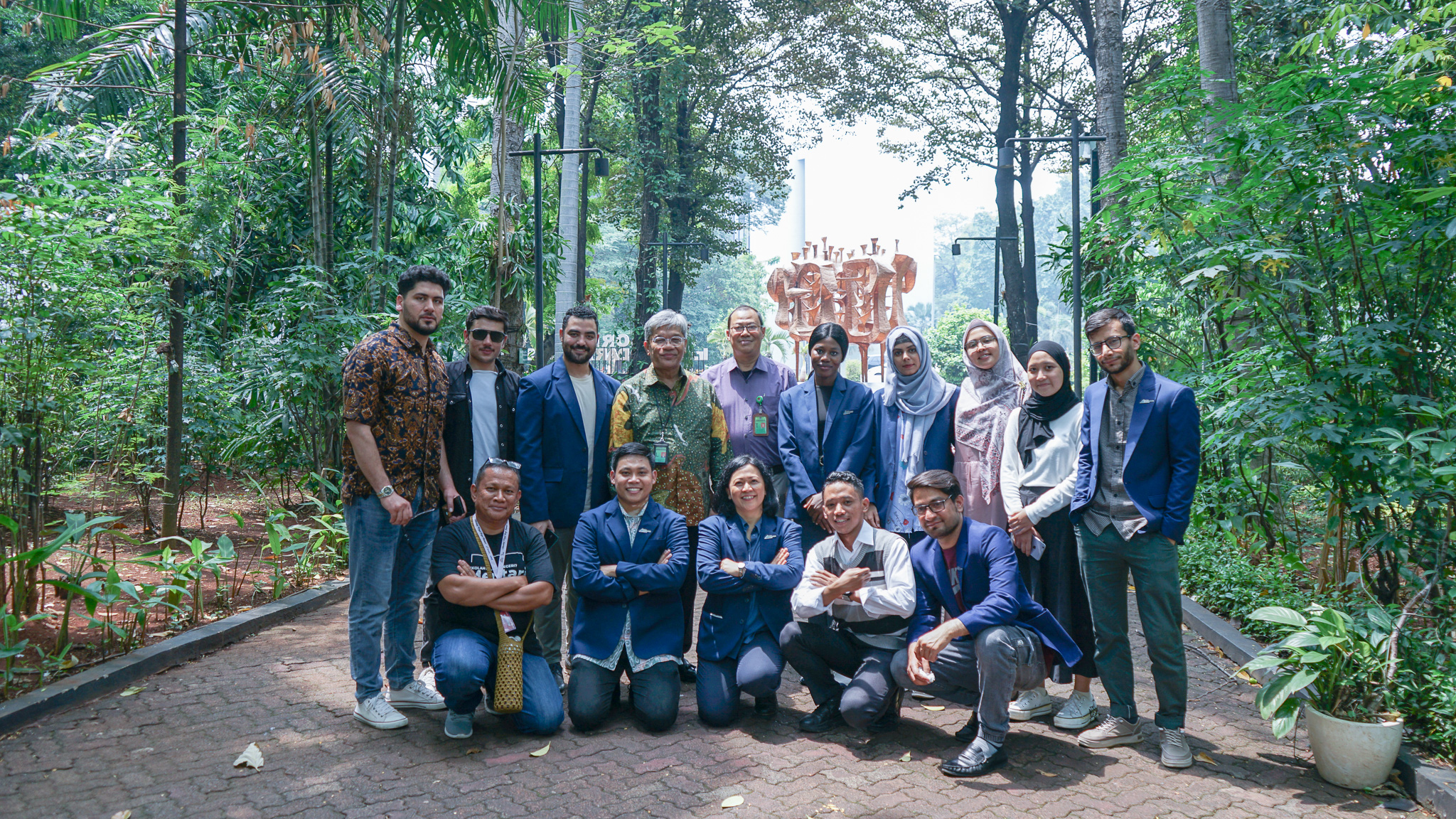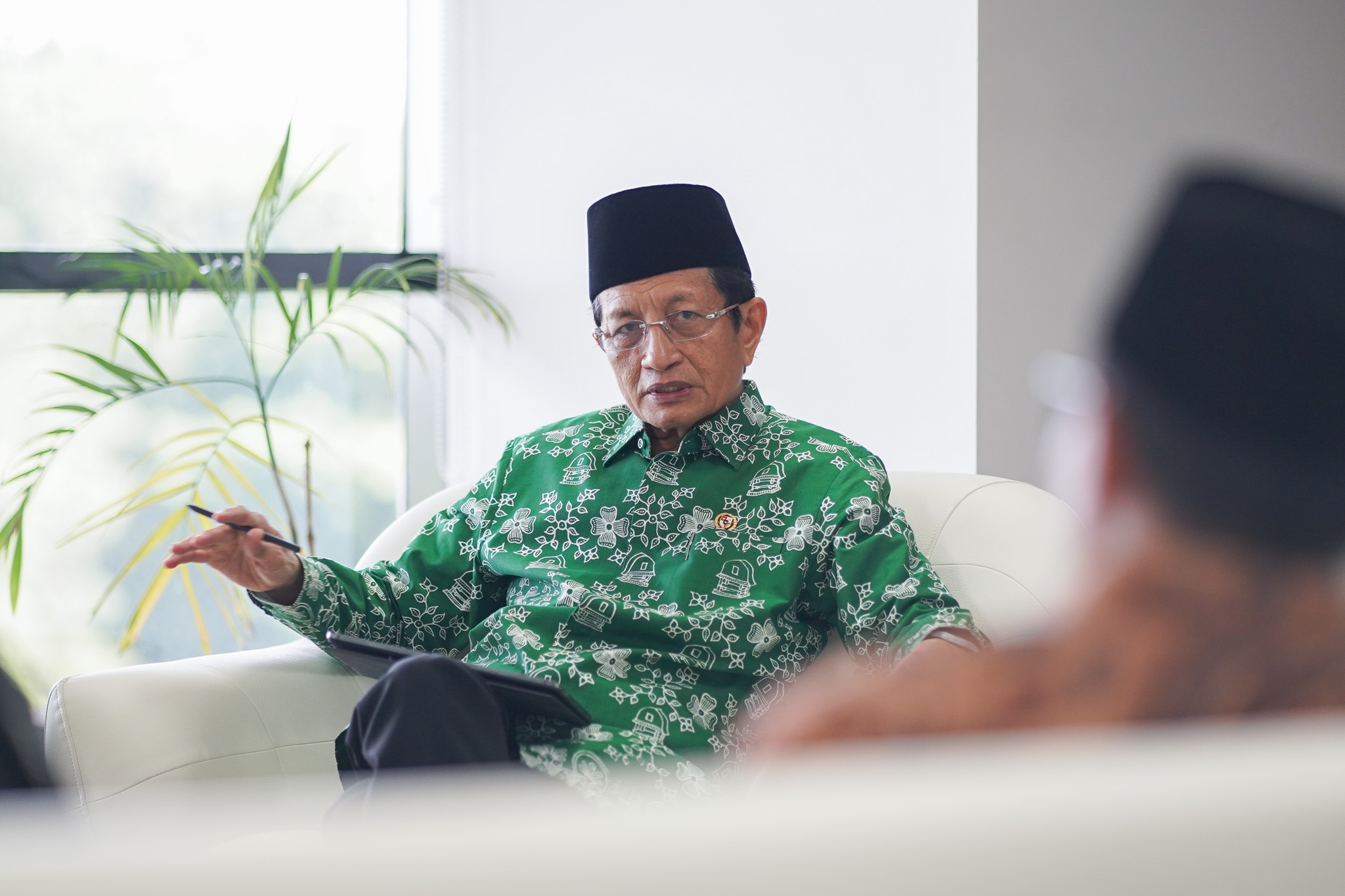Dubai Records: Prof. Schaeffer Shares Insights from COP28 Climate Talk
January 02, 2024Contributor: Saemah Shamim | Editor: Ari Stoltze

UIII.AC.ID, DEPOK - Prof. Dr. Michiel Schaeffer, an esteemed adjunct Professor of Climate Change Public Policy and Lead Science Advisor at Climate Analytics, shared key insights during our exclusive Climate Talk on Thursday, December 14, 2023, that was initiated by the faculty of social sciences at Universitas Islam International Indonesia.
Dubai recently played host to the 28th Conference of the Parties (COP28) to the UN Framework Convention on Climate Change (UNFCCC), a pivotal summit where global leaders convened to address the pressing issue of climate change.
Setting the stage in Dubai, COP28 saw a diverse gathering of representatives, experts, NGOs, INGOs, international industries, and press, all converging to collaborate on climate change solutions. Prof. Schaeffer highlighted the sheer magnitude of participation, underscoring its significance as he faced a two-hour entry process due to the unprecedented attendance.
Acknowledging the future challenges of climate change, the summit placed a special focus on the youth. Prof. Schaeffer emphasized the importance of their involvement as real challenges are anticipated in the coming years.
Navigating into COP28, Prof. Schaeffer delved into the state of play, emphasizing that limiting global warming to 1.5 degrees Celsius is still attainable. However, he stressed that emissions must peak before 2025 and be halved by 2030 to achieve this goal. Extreme weather events from May to November 2023 underscored the urgency for increased ambition and accelerated action.
COP28 aimed to deliver a multi-faceted message, focusing on keeping the 1.5-degree target within reach and accelerating mitigation action, completing the first Global Stock Take (GST), operationalizing the Loss and Damage (L&D) fund, completing the Global Goal on Adaptation (GGA) framework, and scaling up and improving access to finance.
The negotiation dynamics at COP28 were marked by the spotlight on multilateralism and the credibility of the Paris Agreement. Strained geopolitical relationships, particularly the conflicts in Ukraine and Palestine, added complexity to the discussions. Trust in financial commitments, notably the $100 billion/year target, remained low.
Negotiations yielded strong outcomes with a significant reference to science. Targets included peaking global emissions before 2025 and reducing emissions by 43% by 2030 and 60% by 2035. Prof. Schaeffer highlighted signs that emissions could peak soon, with China potentially achieving this milestone in 2024.
Key issues of adaptation and finance were addressed, emphasizing the importance of science in determining just transition pathways. The Just Transition Work Program highlighted the need to recognize Least Developed Countries (LDC) and Small Island Developing States (SIDs) while balancing global transition pathways with national circumstances.
Prof. Schaeffer concluded by highlighting the key takeaways from COP28, focusing on keeping the 1.5-degree target within reach, completing the first GST, operationalizing the L&D fund, completing the GGA framework, and scaling up access to finance. He also noted the presence of oil and gas lobbyists, the high media attention on COP28, especially on the Presidency, and multiple declarations led by the Presidency. Prof. Schaeffer emphasized the importance of these negotiations in creating a better environment in the future.
In line with our commitment to keeping our readers informed, the Faculty of Social Sciences continues to ensure that our students stay abreast of global developments. We remain dedicated to fostering awareness and understanding of crucial issues shaping our world.
- Dr. Nia Deliana Navigates India-Indonesia Maritime Softpower at Odisha Research Workshop
- UIII Extends Application Deadline for 2025 International Admissions
- UIII Embraces a Green Ramadan: A Month of Worship and Sustainability
- UIII Evaluates Quality Assurance System, Plans For New Study Programs
- Lost at Sea: UIII’s Dr. Nia Deliana Reveals the Silent Crisis of Sea Refugees
- The Qur’an in a Changing World: Prof. Sahiron Syamsuddin’s Visionary Lecture at UIII
- A Shared Mission of UIII and ICRC in Advocating International Humanitarian Law
- Hartford International University for Religion and Peace Signs MOU with UIII for Future Academic Partnership
- Professor Dian Masyita Honored as a Changemaker in Empowering Communities
- Bridging the Archipelago and the Nile


